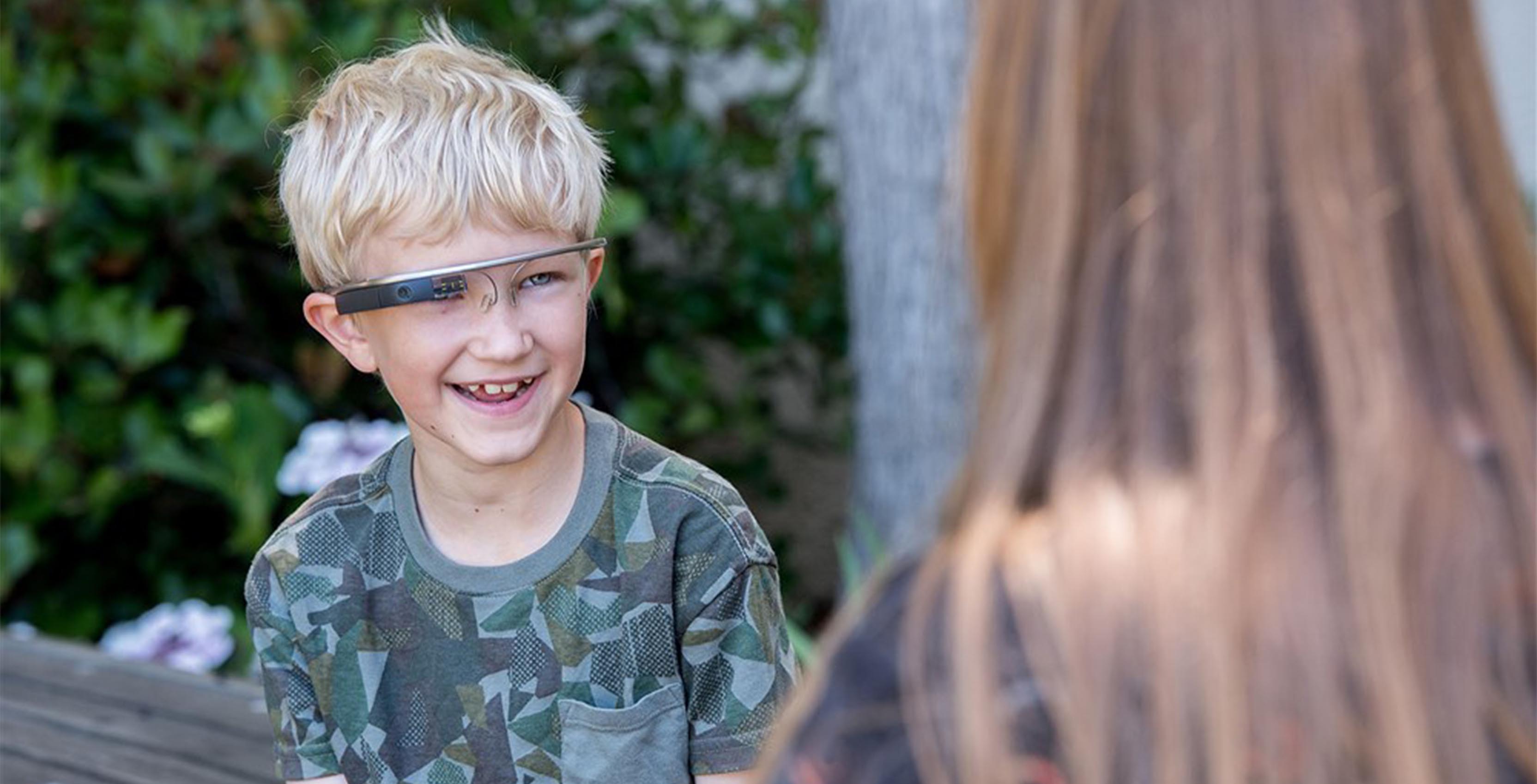
Google Glass is making a comeback as an experimental tool in autism therapy.
The project, dubbed Superpower Glass, uses software developed by the Stanford University School of Medicine. The software uses Google Glass’s outward-facing camera to read facial expressions and deliver social cues.
Because avoiding eye contact is a common trait of autism, it can be hard for children to learn social cues. However, this project hopes to help children engage.
While a previous lab test with 100 children showed potential, Stanford recently took the project out of the lab. A trial run with 14 kids in their home showed promise, with 12 of the families reporting improvement.
Dennis Wall, the lead author of the released trial results, told NBC News how the program works.
According to Wall, the glasses record what the children see and relay the data to a smartphone app. The app prompts the child to engage with what they see. Furthermore, a game-like interface motivates children to engage with people’s faces. The software provides positive reinforcement when they do.
The software offers three modes to help kids learn and recognize emotions. The first, free play, provides unstructured feedback on identifying faces and reactions. The second mode encourages children to find a person displaying a particular facial expression. Finally, kids can identify facial expressions in a ‘guess the emotion’ mode.
Children can play these games with a parent or caregiver, which provides an opportunity for families to engage that may not have happened otherwise.
Superpower Glass expands on traditional autism therapy that uses flashcards to practice identifying emotions. Adding technology to the mix expands the options and provides data on progress.
The children in the trial played for just 20 minutes three times a week. However, some parents noticed improvement almost immediately. The children were providing more and more eye contact.
However, there is still plenty of work to be done. Further tests will reveal if Superpower Glass is effective beyond traditional treatment.
That being said, the early results do look promising.
Google discontinued Glass in 2015, but brought the product back last year for businesses.
Image: Steve Fisch, Stanford University School of Medicine
Source: NBC News


